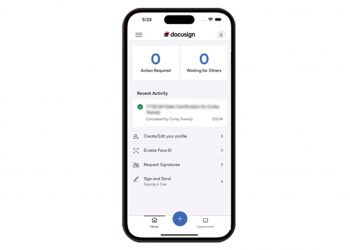
By Barry Hurd
RISMEDIA, Nov. 27, 2007-The buzz in the past 12 months has been about blogging, podcasting, online video…hundreds of ways for people to share commentary and talk about things. Regardless of how active you want to be with social media, the general population simply doesn’t care if you are in the conversation or not. They are going to blog about you, discuss the colors in your logo, comment on how customer service issues were resolved, and possibly even try to tell you how to run your business. The community at large may be your best friend or your worst enemy…
The question on most business owners’ minds is simple: Is there a conversation going on about you?
Every day there are a thousand blogs and community portals striking up conversations about every topic imaginable. This online conversation is being leveraged for both “Good and Evil” by business and personal users, ranging from things like search engine marketing to promoting a new product on a local community site.
Here are some important tools you can utilize to understand how your business is perceived online:
1. Google Alerts (http://www.google.com/alerts)
Google Alerts is a free service that e-mails you an update of relevant Google results based on the keywords you select. It is simple yet highly effective way to setup a weekly e-mail that notifies you of keywords with your personal name, company name, and even the name of your competitors. By staying up to date in the conversation, you can react to things as they happen and maximize your response.
2. Technorati.com
Unlike Google, which views everything as an entry of data that is sorted and indexed, Technorati tracks blogs as if they are conversations between people. It tracks how many people commented on other blogs, how many readers are subscribed to each blog, and the overall ripple a conversation has online.
3. Google RSS Reader (http://www.google.com/reader)
Google provides a free Web enabled RSS reader. This may not include your name or search strings, but when you find a blog or site that has information about your brand or your industry, subscribe to it’s RSS feed by using Google’s RSS Reader. If they talked about you once, they may be inspired to talk about you again.
To help cover the basics of what you need to monitor, here are four items you should keep an eye on:
1. Company name and slogan. If you have a name with more than one word, you can use quotation marks around it to reduce the number of false reports on your name.
2. Company Web site. Keep an eye out for both your company URL with and without the www extension. Many bloggers and commentators will only include a link to your site and may not use the proper name of your company.
3. Names of executives and team members. Make sure to add the name of everyone on your executive team or who drives significant value for your business. You can use quotation marks around full names to reduce false reports. You will also want to consider variations on basic names such as “Bob / Robert”
4. Names or properties, developments, products, or services. Any significant asset in your company that has a proper name should be on the monitoring list for your marketing and public relations efforts. There is nothing worse than trying to list a property that has a negative headline article in the local newspaper that you do not know about.
There are three main reasons to monitor your online presence as part of your weekly duties.
1. Protecting your online reputation and brand
You spent a lot of time and effort creating your brand, and your online presence may be the first interaction a potential client or business partner is exposed to it. By knowing what is being said about you online, you can protect yourself against opinionated statements and leverage good information for marketing and public relations campaigns.
2. Competitive intelligence
If you really want to know what “Web 2.0” is, it means that the competition is moving faster than ever. Monitoring your own online presence along with competitive sites is a key way of keeping up-to-date with the marketplace.
3. Reacting to the industry
When you accept that over eighty percent of the current prospect base is turning online for information, being able to react to trends on a daily basis allow you to set yourself apart from the competition that is oblivious to changes in the industry. Having a strategy for maneuvering those obstacles as they happen is an easy way to establish your business as a leader in the industry.
It is not a requirement to participate in the conversation, but being ignorant of a conversation regarding your business is a quick way to being blind-sided by situation that could have been dealt with in the early stages. Many topics in the online marketplace tend to have a short lifespan. Knowing how to identify and monitor the ones that have an impact or growing trend allows you to make the decision to interact and allocate your effort accordingly.
About the author:
Barry Hurd is president of Social Media Systems, an online marketing and advertising consultant group working with search engine marketing and leveraging social media communities. He has over 15 years of entrepreneurial Internet and online marketing experience. As an author and prolific blogger, he has reached online audiences around the world. Since the mid-1990s, Barry has been involved in numerous efforts to bring forth technical innovation through online business models. Past projects have included NIKE, REI, TMP Worldwide, Monster.com, Verizon Superpages, Intuit, and RISMedia.
For more information, visit the Social Media Systems Social Media Marketing Agency: http://socialmediasystems.com










